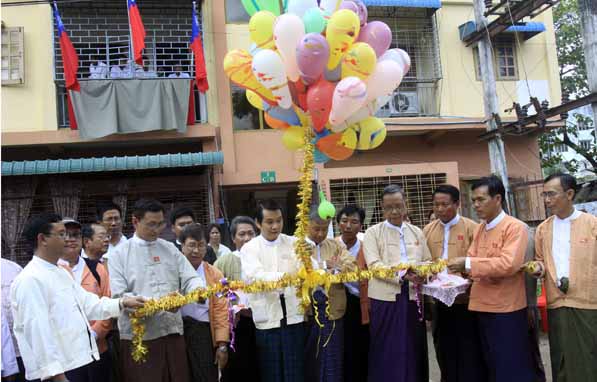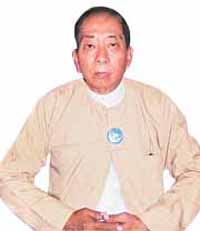Avoiding Details Like the Devil

Whether due to a fear of junta retribution or the universal inability of politicians to commit to detailed platforms, Burma’s new political parties have produced only vague economic policies.
The Burmese opposition, newly formed political parties and the international community have spent the last several months questioning whether the upcoming election can provide a change in the country’s political environment that brings the Burmese people at least a baby-step closer to democracy. But for many of those at the lower end of Burma’s economic scale, the more imminent question is: Can the election positively alter Burma’s floundering economy?
 |
| Democracy and Peace Party Chairman Aung Than |
In addition, thanks to the large-scale exploitation of the country’s natural resources, the junta’s coffer of foreign hard currencies has risen in value from a few hundred million dollars in 1988 to billions today. With the income stream expected to increase, future governments will be tasked with deciding what role the public and private sectors will play in managing the country’s wealth.
Other economic issues that involve at least some level of government involvement and decision making are prominent as well. Asked to name the single biggest difference between the past and present economy that affects the Burmese population as a whole, Aung Than, the chairman of the Democracy and Peace Party (DPP), said: “The value of money. In the past, our currency was valuable and we gained profits in trading with other countries. But the situation has now been turned upside down, and we need to change it.”
So it stands to reason that one of the main issues to be debated by the more than 40 political parties in the run-up to the election would be the steps that should be taken to improve the direction the country’s economy and put more rice and curry on people’s tables. But for whatever reasons—be they fear of the big sticks wielded by the junta’s censorship board and election commission, lack of understanding and lack of time to consult economic experts, or simply the universal affliction of politicians being unwilling to address difficult issues—Burma’s fledgling political parties have been largely silent on economic matters.
The most detailed policy statements have been put forth by the junta-backed Union Solidarity and Development Party (USDP), which is led by the incumbent prime minister and is expected to dominate the election. The USDP party platform, a copy of which was obtained by The Irrawaddy, says the party will practice a “market economy” without elaborating on what that means. But the document goes on to describe a USDP economic policy with 10 specific points, all of which reflect the junta’s current economic policies.
The USDP’s economic goals include: “To ensure the participation of all the stakeholders such as the state, the regional associations, co-operatives and private enterprise in the economy; to help the growth of small and medium enterprises; to [protect the monopoly] of an individual or a group; to help the native businessmen to be able to compete with the foreign investors; and to guarantee no demonetization of the currency.”
In addition, the USDP platform says the party will build the capacity of the Tatmadaw [the military] through its “political might, economic might and military might.” This suggests that the USDP would maintain the protectionist policies that the junta has utilized to favor the military-run economy that dominates the overall economy in order to make sure the generals and their cronies can harvest most of the profit to be had in the marketplace.
1 | 2 | 3 next page »
